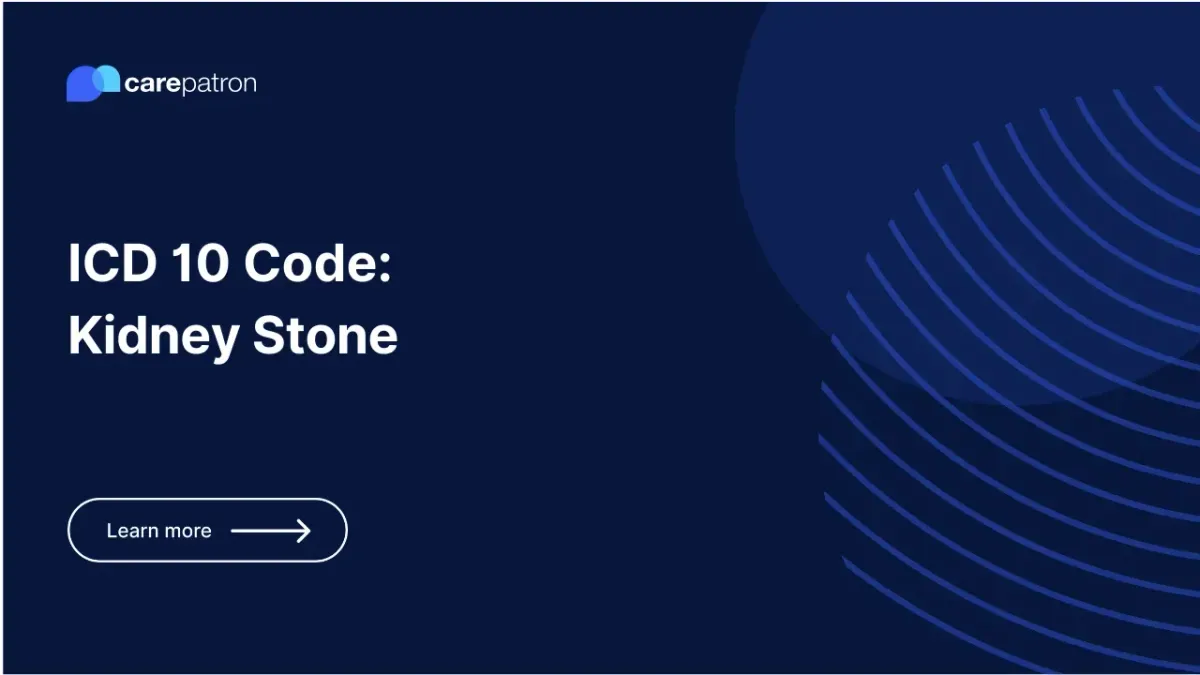
Kidney Stone ICD-10-CM Codes | 2025
Read this comprehensive guide to Kidney Stone ICD-10-CM codes, which includes necessary codes, clinical information, billability, synonyms, and FAQs.
Use Code
Commonly asked questions
Common symptoms include severe pain in the side and back, blood in the urine, and painful urination. Nausea and vomiting may also occur.
A high intake of salt, sugar, or protein, especially from animal sources, can increase the risk of developing kidney stones. Dehydration, certain medical conditions (like gout or urinary tract infections), and a family history of stones also raise the risk.
Treatment depends on the size and location of the stone, the patient's overall health, and whether the stone is causing pain or urinary obstruction. Treatments can include hydration, pain relievers, medical therapy, and, in some cases, surgery.
EHR and practice management software
Get started for free
*No credit card required
Free
$0/usd
Unlimited clients
Telehealth
1GB of storage
Client portal text
Automated billing and online payments
